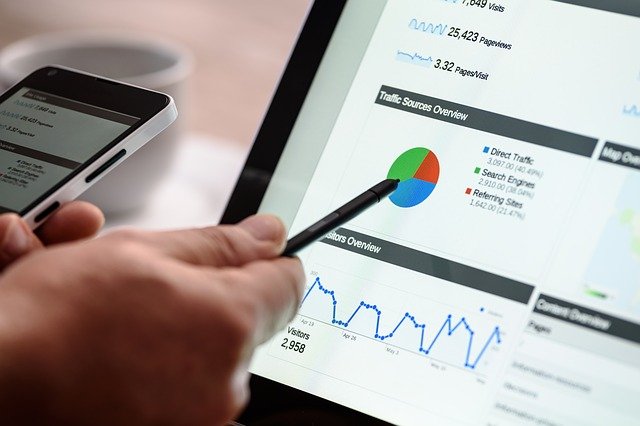5 Ways That Digital Advertising Intelligence Can Boost Your Online Marketing

Artificial digital advertising intelligence is one of the fastest-growing areas reshaping the future of the online world today. This data enables ad agencies, digital marketing managers, or merchandise managers to view their own and competitors’ advertising, promotions, quality, pricing, and product content in practically real-time, multi-dimensional ways. Digital advertising intelligence technology also helps businesses optimize how they spend money and target audiences for better performance.
Here are the top 5 ways that digital advertising intelligence can boost your online marketing business.
1. Purchase and Place Digital Ads
Advertising today centers on programs that target audiences and deliver real-time ads to internet consumers.
AI technology is central to business infrastructure that creates product advertising across multiple platforms. Even though you might not notice it, digital advertising intelligence is always at work to buy, sell, manage, and place ads.
Instead of having a human manually perform these days, nowadays, all digital advertising platforms employ intelligent programs to buy and sell real-time advertising. In the background, advertising AI regulates exchanges, third-party networking, and social media advertising on sites like Instagram, Facebook, and Snapchat.
Digital advertising intelligence algorithms regulate how to allocate ad spend, how it is used, what audiences view your ads, and manage campaign effectiveness. This means that if your company runs paid to advertise, you’ll want to learn AI technology terms that will help you to ask the right questions about how AI platform use can affect your spend.
Here’s a basic example of how this works:
Facebook uses algorithms to gather and regulate data such as relevance score and ad frequency. Digital advertising intelligence allows it to run without involving humans in the process about how much the company pays and how and where ads are displayed.
This is important since data shows that target audience engagement plummets when bombarded with ads too frequently. Meanwhile, a high relevance score means that your target audience sees your ads more often than the platform displays your competitors’ ads.
In simple terms, it’s just as good an idea to understand how intelligent algorithms work as it is to know your target audience.
2. Optimize Your Ad Budget or Performance
Your performance optimization is central to AI use in advertising. These intelligent algorithms adapt and learn based on past performance. AI can also analyze how multiple ads are performing across various or specific platforms. Then they will suggest ways to improve add engagement and performance.
Even better, some digital intelligence programs will even take initiative to make these advised changes for you. This will save you a lot of manpower and time. They are even developed enough to point out issues that you didn’t realize were a problem.
Performance optimization is one of the key use cases for AI in advertising. Machine learning algorithms are used by commercially available solutions to analyze how your ads perform across specific platforms, then offer recommendations on how to improve performance.
When it comes to budgeting, advanced intelligence automatically optimizes your ad spending. With the ability to make decisions based on analysis and performance, AI takes the guesswork out of how and where to best manage your spend.
AI also works constantly behind the scenes to make your ad copy, make it look creative, and analyze real-time KPIs and performance data to help identify new target audiences that are likely to buy your product.
3. They Create or Manage Ads
Digital advertising intelligence allows you to have a more hands-off approach to your advertising process.
When you have an AI-powered system, this intelligent program can either create full or partial ads for you. This means that you may no longer need a copy or creative department since AI can do it all.
These intelligent algorithm systems use something called natural language processing (NLP) and natural language generation (NLG). Together, these two intelligent technologies can write ad copy or draw up creative images that are reputed to out-perform human work in less time.
This is one of the best functional aspects involved in advertising intelligence. This means that you can automate what ads you would like to run based on your promotional goals.
4. Boosts Conversion Rates
If you’re an ad agency or a platform that runs ads, AI represents the future in advertising possibilities.
Some of the world’s largest firms rely on AI to boost their ad conversion rates by up to 15%. Among them, Vanguard, with $7 trillion in asset management, used Persado to create custom personalized advertising that pulled returns that boosted their success by 15%.
5. Take the Guesswork Out of Ad ROI
As a takeaway, digital advertising intelligence means that your company no longer has to employ more people to take more time to analyze data results and figure out performance optimization.
AI does that for you in a fraction of the time.
AI can help marketers predict trends, target audiences, optimize their spend, and execute personalized ads faster and better to outpace competitors.
